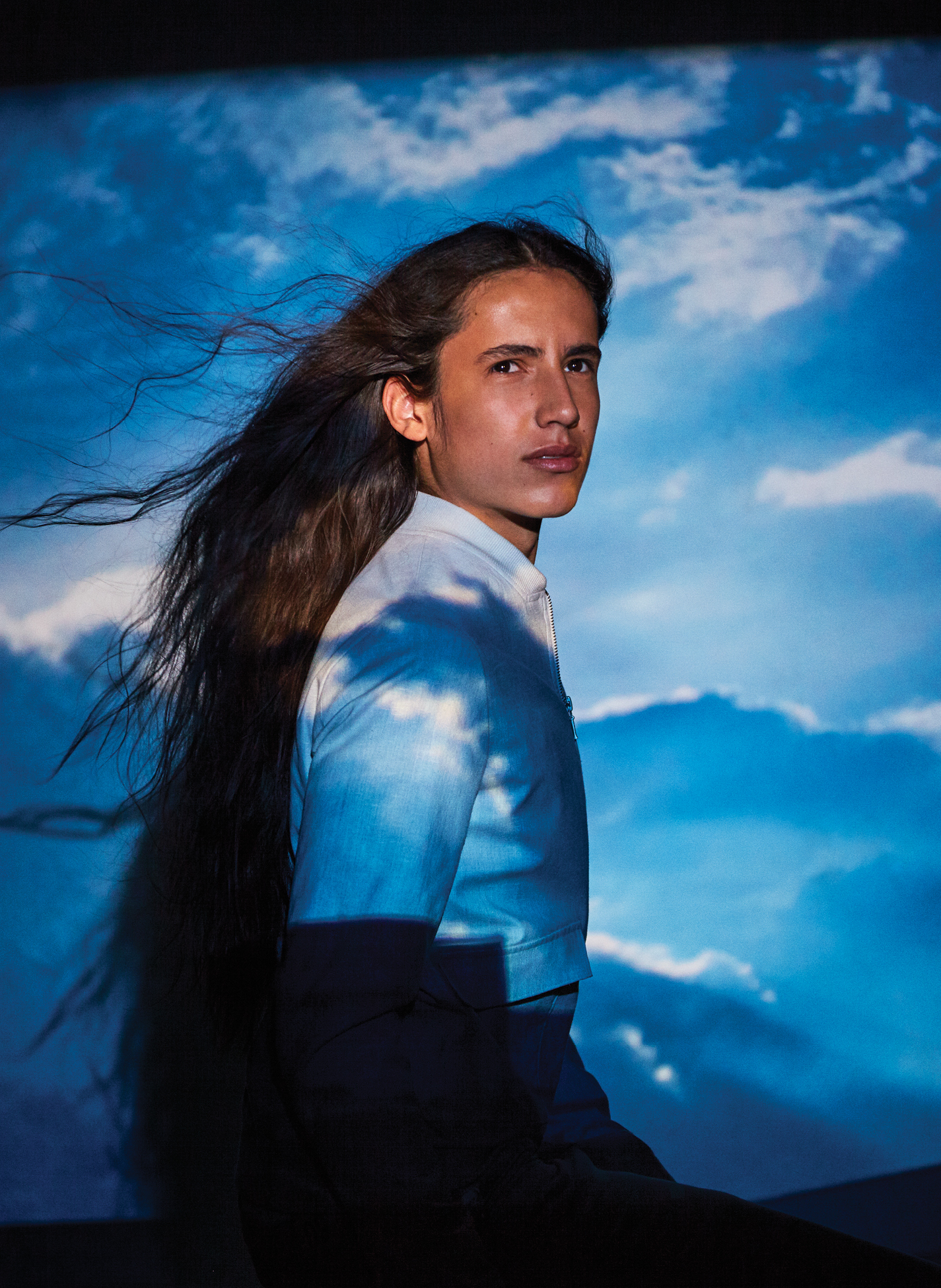EARTH GUARDIAN: XIUHTEZCATL TONATIUH
Interview & Photography by Dustin Mansyur | Styling by Marc Sifuentes | Art Direction by Louis Liu | Grooming by Anthony Joseph Hernandez
An unassuming leader, not old enough to vote, Xiuhtezcatl Tonatiuh (pronounced Shoe-tez-kaht Ton-ah-tee) is an undeniable force of change for his generation and those to come. Possessing an intrinsic spiritual wisdom stemming from the traditions of his Aztec heritage, Xiuhtezcatl’s love for the earth was instilled in him from early childhood. As one of the twenty youth plaintiffs suing the United States Federal Government in a historical class-action case for its prior knowledge of climate change and failing to take preventative action, Xiuhtezcatl is a voice among many pleading for us to recognize the magnitude of the issue that we’ve created.
At a time when grassroots movements can be nurtured through the use of technology, social media wields the power to cause both disconnection from our realities, and connection amongst those who will create our reality. It is by this means that the future summons the past for collaboration. As youth director of the non-profit, Earth Guardians, Xiuhtezcatl has already spoken three times at the United Nations on environmental policy, a hefty accomplishment for anyone who is leading a movement. He blends his leadership skills with his charismatic musical talent as a hip-hop artist, to amplify his message on all social media platforms and connect with others around the globe who support his cause. Xiuhtezcatl exudes, “The combination of both generations can create a better world for the future where we can balance ways of life that existed in the past, but also taking advantage of technology and creating societies that are less destructive to the planet but can continue to move forward into the future.”
The implication of the issue at hand, however, is that climate change is a violation of human rights. With peak-consumerism climaxing at the environment’s expense, it’s hard to imagine how one might pursue life, liberty and happiness, if in fact the earth cannot even sustain life. Perhaps then it is a surprise that the seeming-naivety of youth is the one sounding the largest alarm. Xiuhtezcatl beckons us, “I think that reconnecting to the sense that we are part of the whole planet and a species of beings that will not exist anymore unless things change–and that means lifestyle change, policy change, people standing up in our courts, streets, communities, electing officials who will speak with our voice.”
Iris Covet Book had a chance to speak with the “Kid Warrior” on set at his photoshoot in New York.
When did your passion for environmental issues begin and at what age did you start organizing/working with Earth Guardians?
My passion for environmentalism began when I was super little. Growing up, I spent all of my time outside in nature: in the forests, in the mountains and rivers. Just immersed in the beauty of the natural world. From there, I began to learn about the problems facing the environment through my mom and through my siblings. We were all engaged in that, and I began using my voice to speak up about it.
We started talking about climate change, environmentalism, creating small local events –then in 2009, I thought, what if we got other young people involved? I had an interest to engage in the friends of my community. I was nine years old when I began Earth Guardians, kind of the third generation of my community. It was just me and a group of my friends who showed up to town hall meetings because they started spraying pesticides on our parks, from there we stopped getting pesticides sprayed in Boulder and then were able to get movement on a global level.
It became so much bigger than just ourselves, because the world saw it as a step forward for young people to use their voices to make a difference in the world regardless of the cause.
In your videos online, you attribute your love for nature to your upbringing and the traditions of your father’s tribe. Can you describe when you first became aware that you had this connectedness to the Earth?
There was never really a defining moment because being born into that culture taught me that being with nature was just a way of life. Since I could walk, I was learning traditional dances. Since I could speak I was learning our languages and our songs. All of that revolved around prayer and ceremony for the elements that give us life. That shaped the deep connection that I have with the natural world, and I am apart of it just by being on the Earth.
In regards to modern society, what attitudes, behaviors, or beliefs do you think people in general are missing in their way of life that contribute to environmental degradation?
I think it’s about convenience. As a teenager, growing up and going to high school I saw that in my peers because it is very easy to go through life and not care about anything. Where we are so disconnected from ourselves, from one another, from the planet from what we eat, there’s such a sense of disconnection that it’s easy for us to fall into apathy.
It’s easy to fall into hopelessness because when we look at crises that face the world, it’s incredibly overwhelming. I see a general disconnection with human beings to problems that matter.
Why do you think climate change is a multi-generational issue? How do you think that we can benefit from multi-generation collaboration?
I think it is pretty plain to see. Past generations created this crisis, and obviously we perpetuate it today, but our parents and the generations of the past are responsible for letting it happen. Those in power are responsible for climate change. As young people, we are going to be inheriting the problem that the past generations created. They had a party on the planet and left it for us to clean up. If you look at it that way, if we want to actually create change in the world to fix a global problem like climate change, it is going to take more than just action from our elected officials, and from older generations.
I feel like older people have a wisdom that we can learn from to make things actionable, and the youth have an incredible amount of ingenuity. We are creators, entrepreneurs, thinkers. We are exploring the world in such a new way because we have lightning fast access to information, media, etc. The combination of both generations can create a better world for the future where we can balance ways of life that existed in the past, but also taking advantage of technology and creating societies that are less destructive to the planet but can continue to move forward into the future.
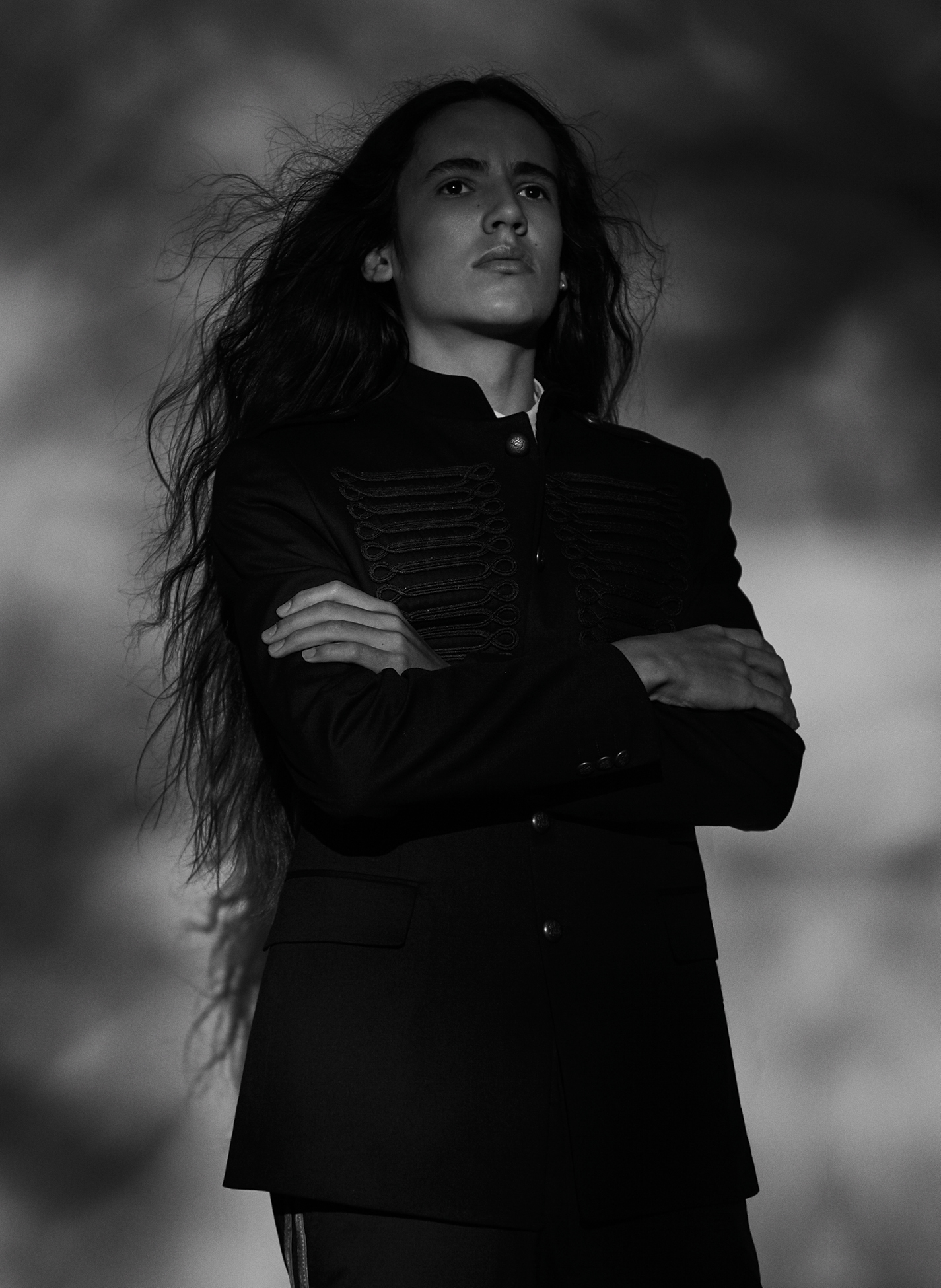
That brings to mind inventive and visionary solutions like Studio Roosegaarde’s Smog Free Project in China that will turn smog into diamonds by means of a giant “air purifier”. We’re making lots of advancements!
Yeah, I mean you see it every day! Part of what keeps my head above water and keeps me inspired and hopeful is looking at all of the solutions. I see kids all over the world who are improving and creating amazing ideas on how to reduce our impact on the world. Our use of paper, water, etc. We need to focus on long term solutions so we can create a lasting society so that generations in the future have something to inherit.
How has technology and the internet been influential to you as a leadership tool?
Telling my story through the media has been incredibly important to having the world know who I am, what I am doing, the movement I’m trying to spread. As I said, I started this as a kid trying to help my community, and people started to see what I was doing and post things online and share through YouTube and Facebook. I started working with this documentary filmmaker named, Vanessa Black, to make a short documentary called “Kid Warrior” to show my story. That went viral and got millions of people to learn about what I was doing. It went beyond just “Kid Warrior”, but got the attention of the United Nations. Now, I am working with a lot of different media outlets in the fashion industry, Hollywood, the music industry, and using these different avenues to propel the message so everyone has access to find out what we are doing. It’s not just about one person, it’s not just about me, it’s about inspiring leaders all over the world to make change.
You recently addressed both Presidential candidates via YouTube, and even though you’re not old enough to vote, what kind of action do you want to see taken by the next President of the United States?
I feel like as the United States we have an amazing amount of power and influence in the world, and these next couple of decades are going to determine the next several hundred years. That’s not me saying that, that’s scientists all over the world saying that. Based upon the amount of actions we take, carbon that can be sequestered in the oceans and forests and soil – that will determine what our world will look like. As a leader of one of the biggest and most powerful nations in the world, they have an amazing amount of responsibility to address climate change, to put climate recovery tools into place, and to get off of a fossil fuel infrastructure. Fossil fuel is not a sustainable source, it’s cheap and convenient, but it is not sustainable. Unless our leaders take action, there will not be an earth left to pass on. They have to do something for my generation and the generations ahead
to keep the positive momentum going.
Is there a crucial window or time frame that change must happen within?
I just watched Leonardo DiCaprio’s new documentary Before the Floods, and he said that the ice sheet in the Northern Hemisphere will be gone by 2040. The impact that this will have on rising sea levels globally is already evident, we already have island land masses sinking. Climate change is a human rights issue. People are dying, losing their families, etc. It’s really a question of how much time we have as a city, a country–everyone will be affected differently but in extreme ways. We will have food shortages, lack of clean water, national security, all different problems which we will see with more frequency. There’s not really a specific window because unless we take action soon by making drastic changes in the next five decades, things will just continue to get worse and worse. One of the first places that will be affected are island nations, and it will continue to spiral.
You’ve been personally affected by fracking in your town, can you explain what it is and why it is dangerous?
Fracking is a process in which they take millions of gallons of water and mix it with toxic carcinogenic chemical and sand and they shoot it down into the ground at high pressure. We have exploited so many of our shallow oil reserves, so now we have to go deep into the Earth to crack the last of the shale, and it is very difficult to extract because of the way the shale is formed so they have to open up pockets of gas and extract it from there. The impact of shooting millions of gallons of toxic chemicals into the Earth is bleaching. It leaks into water reserves, naturally occurring watersheds, rivers, basins, where we get our water from, basically. We have about 130,000 fracking wells in Colorado which have been drilled over the past few decades.
Out in public spaces? Like that park in your neighborhood?
Yes, public spaces, parks, homes, hospitals, schools. We’ve fought really hard to get bans and moratoriums on fracking in specific municipalities of Colorado and we got a five-year moratorium on fracking in Boulder, but this year it will lift and
we will no longer be safe from its impacts. I know kids in other communities where the people are suffering from different cancers, lung diseases, respiratory problems, nosebleeds, migraines–all of these different problems that are affecting children and families. The people living next to these wells are screwed. We have to take action against these oil and gas companies.
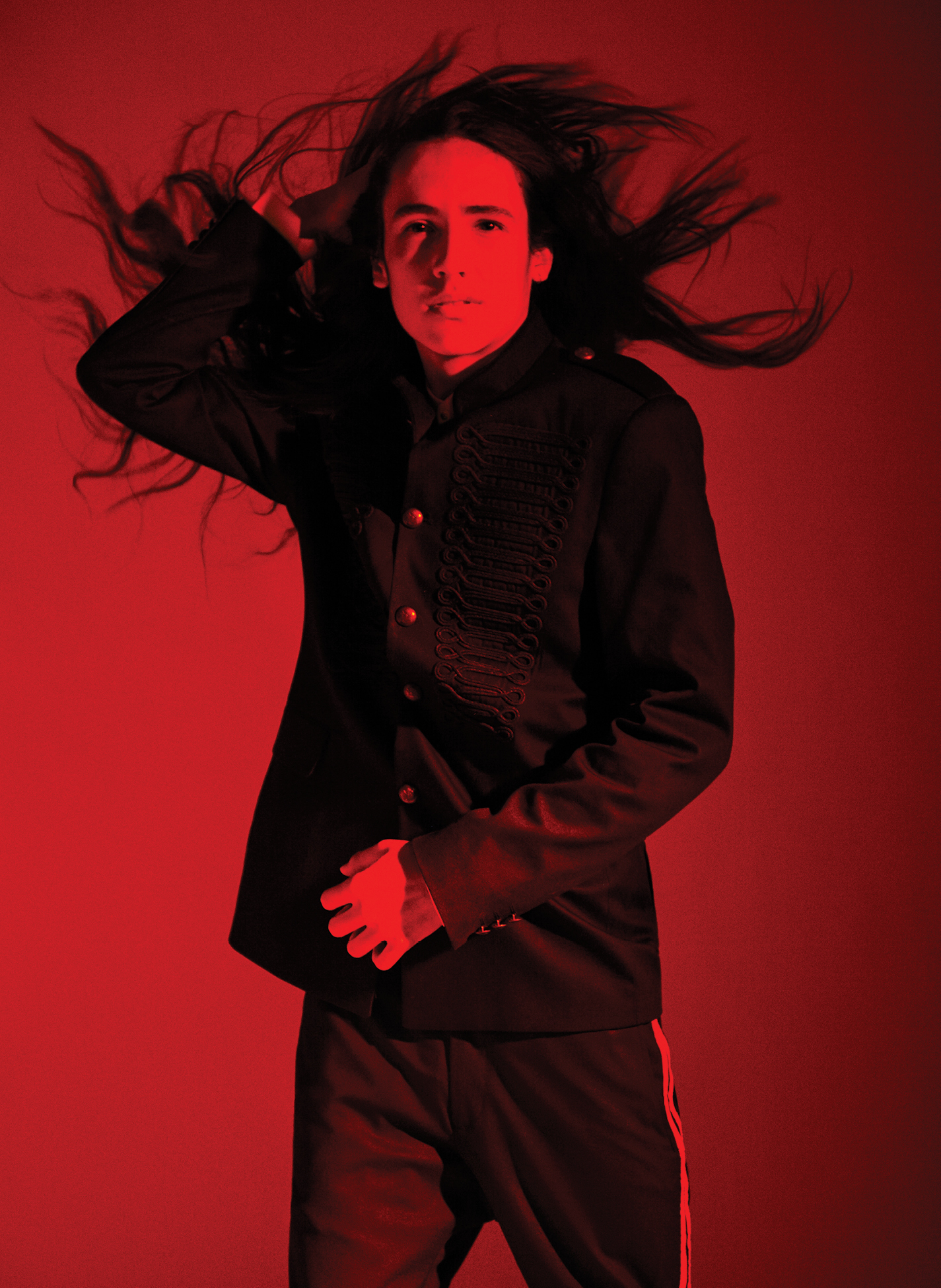
Do you always wear your gas mask when you play basketball?
(laughs) Not always, but when I am in certain areas of Colorado you’ve got to.
What prompted the decision to filethe lawsuit against the United States government, and what was going through your head when you started that journey?
So, I am one of twenty youth plaintives filing against the US Federal Government to keep them accountable for violating our constitutional right to life, liberty, and property because of their lack of action on climate change. I’ve been working on these lawsuits for the last five years, starting with local powers in my state to get statewide action on climate change and those lawsuits are still going on in my state. Now we are in a huge class-action lawsuit against the Federal Government, we are hoping in the next thirty days that we will get a ruling that will allow us to take this case to Supreme Court so we can put the Federal Government on trial for threatening our future. It is incredible to see we have a voice in a legal system where people aren’t represented or heard from. This is not about politics or money, it’s about our future.
What are some of the practical ways that Earth Guardians is making a difference on the issue of climate change and how expansive has the group become?
It’s incredible to see how so many different communities all over the world are taking different actions to make global change. That’s the beautiful thing about Earth Guardians because it is a movement where anyone in any part of the world can sign up and create a community in their homes or schools and begin to make change in small steps—whether that’s through tree planting, or picking up litter, to painting a mural, creating a fashion show out of recycled materials, whatever it is that inspires you. Being a part of Earth Guardians is just being a part of a big global family of people who care and want to make a difference. We have quarterly global events where every young person involved with Earth Guardians has a chance to connect with each other where we can protect our Earth, air, water, and climate. We’ve planted hundreds of thousands of trees, had huge initiatives to clean up our water supplies and educate about water potability. In different countries and different places, we need to work on different things, but it is amazing to see how all of these young people creating small changes individually makes a global impact.
Do you believe that we can unlearn our disconnectedness from the Earth at this point in time?
I think that we all breathe the same air, drink the same water, and we really only have one planet. Culturally we have trained ourselves to be separate from the planet to only view it as an object which we exist on. I truly believe that with the right steps humanity can be trained to fall back in love with the Earth through music, art, culture, nature—these are all aspects of what it means to be human. I think falling back in love with our humanity is what it will take for the human race to understand that we are in danger of going extinct because of our consumption and the destructive relationship we have with the planet.
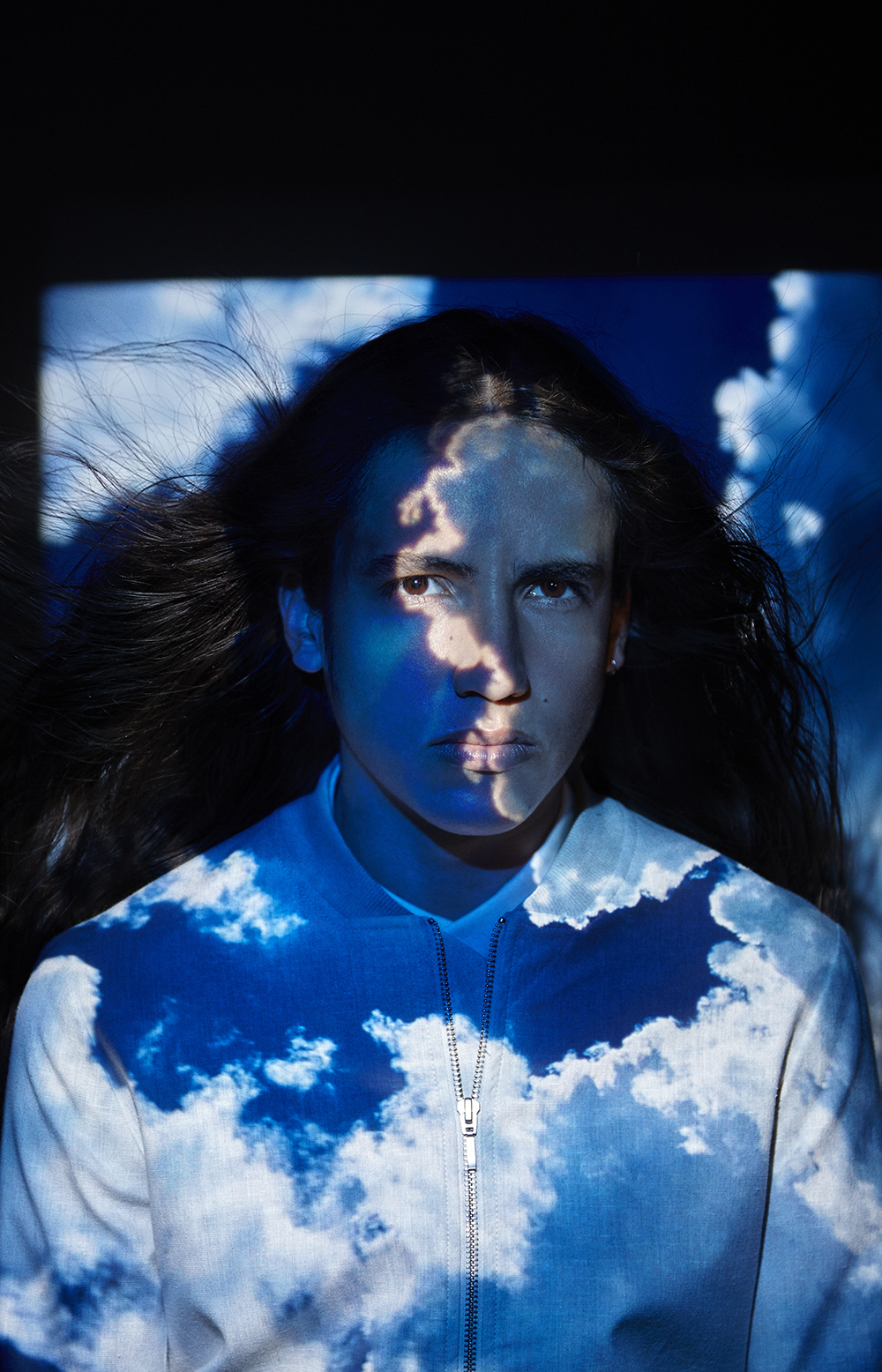
What are some practical lifestyle changes that people can make to reduce their carbon footprint?
The biggest way is to be more conscious. I think that each and every one of us, regardless of how busy we are, we can all take more steps to be more conscious as consumers—the products we buy and the companies we support—and then looking at the food that we eat. Localizing our diets more and being conscious of what is made locally and organically. Small steps like that are great—change your light bulbs, use less water, take more public transportation, but more than anything be conscious of the fact that every decision you make will impact the world, regardless how small. That means that you have a huge amount of power with how you live your life regardless of age, economic background, where you are from, the color of your skin.
Do you believe it is a principle of us taking collective responsibility that should be our motivation, rather than consumerism and profit?
I think living in this country it is very easy to be blind to the world, because we have everything we want, we are so privileged in this country where it is easy to detach ourselves from the problems that are affecting other parts of the world. I think that reconnecting to the sense that we are part of the whole planet and a species of beings that will not exist anymore unless things change–and that means lifestyle change, policy change, people standing up in our courts, streets, communities, electing officials who will speak with our voice.
How do you think greener living affects the psyche? Does it make you more relaxed, more calm, what are the benefits?
When you do good things for other people or for the environment you feel like you’ve accomplished something and you feel better about yourself. If you look at yourself as a human being with a legacy, then you realize how much power you have. Whether it is being a spokesperson for a movement, or something as simple as just creating art for a cause. I believe that the biggest understanding is that we have so much power to promote change and there is so much hope and opportunity for things to change if we will them to.
How do you see yourself growing and evolving with this work?
People often tell me that I’m an old soul, and you know I am a hip-hop artist and an emcee, and I have a huge passion for art and using this art to reach out to people. We’re working on an album now called Break Through that talks about our experiences over the last two years. I am still growing up, and there’s so much that I am learning every day about life, relationships, being a human being, and life on this earth. I think there is a huge amount I have to learn in order to grow and become the kind of person that I want to be.
Why should we have hope on this issue? What gives you hope?
I think giving up hope turns your back on every single person who has suffered before you, every person who has died. Having hope I think is one of the last things that we have, what gives me hope is seeing people wake up all over the world, and it is slow but it’s happening. Looking at struggles like what is happening at Standing Rock in North Dakota. I was there to play a concert and look at what was going on and to be there to support the protests. I saw families living there and resisting multi-million dollar corporations that are trying to go underneath their river, their land, to transport crude oil.
In the past we have seen incredible injustices to take away the rights of indigenous people, but now these indigenous people are taking back their rights and their land. It’s not about indigenous people it’s about all people. It’s not just about this pipeline, it’s about all pipelines. It’s about the infrastructure that threatens and destroys our ability to live on this planet. This protest is one of the greatest symbols of hope that I have seen in a long time, and it is an example of how when you look at the small things that we often overlook our land, our water, our children, and when we understand that that is what’s at stake then people will stand up to fight.
Look at yourself and your generation to see what it is you want to leave behind and what legacy you want to have. We are not just fighting for the environment and the world, but to protect the things that we love in life so our kids and our grandkids can also have those things.
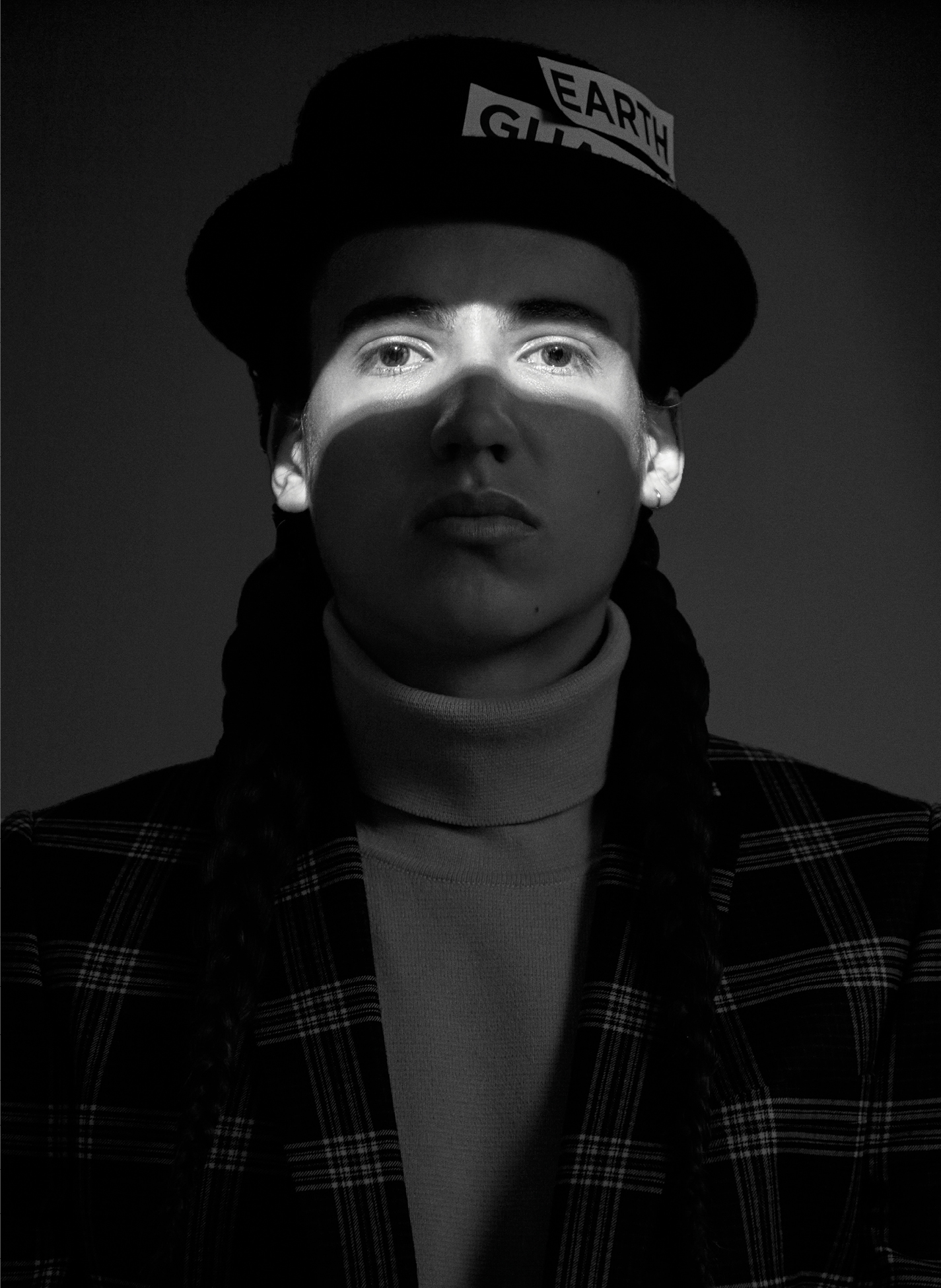
Stylist Assistant: Benjamin Price | Production by XTheStudio
For more information visit earthguardians.org

